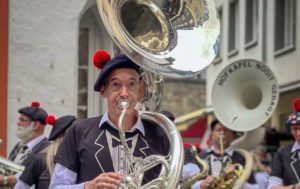Losing a loved one is one of the most difficult experiences anyone can go through. Whether it’s the loss of a parent, spouse, child, friend, or pet, the grief and pain that come with such a loss can be overwhelming, leaving you feeling lost, alone, and unsure of how to move forward. However, it’s important to find ways to cope with the loss and find comfort and support during this difficult time.
If you’ve recently lost a loved one, here are some steps you can take to find comfort and support in the aftermath of their passing:
- Allow yourself to feel your emotions. Grief is a natural response to loss, and it’s important to allow yourself to feel whatever emotions come up for you. This may include sadness, anger, guilt, and a range of other feelings. It’s okay to cry, scream, or simply be alone with your thoughts. Your emotions are valid, and it’s important to acknowledge and accept them.
- Reach out to your support network. Your friends and family members can be an invaluable source of comfort and support during this time. Don’t be afraid to reach out to those who care about you and let them know how you’re feeling. They can offer a listening ear, a shoulder to cry on, or simply a distraction from your thoughts. It’s okay to ask for help if you need it.
- Join a support group. There are many support groups available for people who are grieving the loss of a loved one. These groups provide a safe and supportive space for people to share their feelings, connect with others who are going through a similar experience, and find comfort and understanding. Consider joining a group that focuses on the type of loss you’ve experienced, such as a group for people who have lost a parent, a spouse, or a child.
- Take care of yourself. It’s important to prioritize your own self-care during this time. Make sure you’re getting enough sleep, eating well, and taking time to rest and relax. Engage in activities that you enjoy and that make you feel good, whether that’s exercise, reading, or spending time with friends. Take care of your physical health and your emotional well-being.
- Seek professional support. If you’re struggling to cope with the loss of a loved one, consider seeking professional support from a therapist or counselor. They can help you work through your feelings and develop coping strategies to help you navigate this difficult time. They can also offer guidance on how to manage the many practical tasks that come with losing a loved one, such as dealing with funeral arrangements, managing finances, and more.
- Remember your loved one. Keeping the memory of your loved one alive can be a helpful way to find comfort and support. Create a memorial, such as a photo album or scrapbook, to honor their life and celebrate their memory. Consider participating in activities that your loved one enjoyed, or doing something in their honor. This can help you feel connected to them and keep their memory alive.
- Take things one day at a time. Grief is a process, and it takes time to work through the many emotions and challenges that come with losing a loved one. It’s important to take things one day at a time and to be patient with yourself. Don’t expect to feel better right away, and don’t put pressure on yourself to “move on” too quickly. Remember that grief is a natural and normal part of the healing process.
If you live in Oregon State, there are several resources available to help you find comfort and support in the aftermath of a loved one’s passing. The Oregon State Hospice offers bereavement services to individuals and families who have experienced a loss, including support groups, counseling, and educational resources. The Oregon State Grief Support Center is another valuable resource, offering individual and group counseling services to help individuals and families navigate the grief process. You can also look into local religious institutions or organizations for support.
It’s important to remember that everyone experiences grief differently. There’s no “right” way to grieve, and it’s okay to take the time and space you need to process your emotions. However, it’s also important to remember that you don’t have to go through this alone. There are people and resources available to help you find comfort and support during this difficult time.
Here are a few additional tips to help you cope with the loss of a loved one:
- Practice mindfulness. Mindfulness can be a helpful tool for managing difficult emotions and finding peace in the midst of grief. Consider practicing meditation or deep breathing exercises to help calm your mind and ease your anxiety.
- Find ways to honor your loved one. Consider creating a memorial, such as a garden or monument, to honor your loved one’s memory. You might also consider participating in charity work or volunteering in your loved one’s honor.
- Write about your feelings. Writing can be a powerful tool for processing difficult emotions and finding clarity in the midst of chaos. Consider keeping a journal or writing letters to your loved one as a way to express your feelings and work through your grief.
- Take breaks from grieving. While it’s important to allow yourself to feel your emotions, it’s also important to take breaks from grieving when you need to. Engage in activities that bring you joy and provide a respite from your grief, such as spending time with friends, traveling, or pursuing hobbies.
Remember, there is no “right” way to grieve, and it’s important to be patient and compassionate with yourself as you work through this difficult time. Don’t hesitate to reach out for help and support when you need it.







